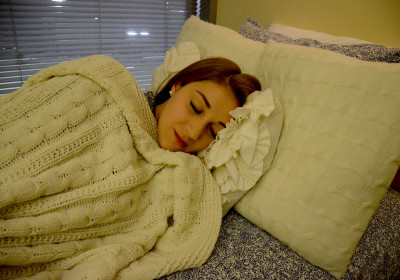
A recent study brought sad news for sleepy students.
Released Thursday by researchers at the University of Colorado Boulder and the University of Colorado Anschutz Medical Campus, the study showed that a lack of sleep may increase the risk for Type 2 diabetes.
Kenneth Wright, the lead author of the study and a professor at CU-Boulder, said in a release that a person’s biological clock becomes altered when they get too little sleep. And when that person eats during a time when they should be asleep, insulin activity is impaired. Wright estimated that by 2050, as many as 30 percent of Americans may have Type 2 diabetes.
Robert Eckel, Wright’s co-researcher and a professor at the Anschutz Medical Campus, commented on this statistic as well, proposing an additional factor contributing to the prediction.
“I think the major driving force for that increased risk of prevalence expected in 2050 is the obesity epidemic,” Eckel said. “We certainly know that obesity is associated with restricted sleep and obstructed sleep apnea.”
According to the release, the study focused on a group of 16 healthy men and women. Half of the group slept for five hours a night for five days, and then for up to nine hours a night for an additional five days. The other half of the group did the same, but in the opposite order.
At the end of the study, the release said, those who slept for five hours had a reduced sensitivity to insulin, a hormone that maintains blood sugar levels. After sleeping for up to nine hours over the course of the next week, insulin sensitivity returned to a normal, but not baseline, level.
Caroline Apovian, a professor at the Boston University School of Medicine, commented on the study and agreed with Eckel in saying that there are numerous factors contributing to an increased risk in diabetes.
“In the 1960s and ’70s, something changed in our environment so drastically that we saw an increase in the prevalence of obesity,” Apovian said. “It could be that there was a perfect storm with excess calories, processed food, high sugar, high fat, a lack of physical activity, short sleep and ambient temperature.”
While college students and older adults are often labeled as being chronically sleep-deprived, Apovian said it isn’t just the older generation we should be concerned about.
“Even children are not sleeping enough because they’re on their cellphones, they’re texting,” she said. “If you’re chronically sleep-deprived, you can’t make it up. That’s the concern, that people who start off as children not sleeping enough will develop disease earlier.”
In order to help reverse the negative effects of little sleep, Hillary Wright, a licensed dietician at Boston IVF, offered some advice to college students.
“Even though it’s not always easy to do, the average college student would benefit from trying to follow some sort of a schedule most of the time,” she said. “So, [try] to get up and make time to eat a nutritious breakfast. [Try] to not wait until you starve to make your next food choice.”
In addition to eating well, Wright emphasized that exercise is a key component in staying healthy.
“Trying not to sit too much during the day is critical,” she said. “Move around as much as you can. Walk around campus. Ride your bike. Get off the technology and move around.”
Apovian also emphasized the importance of college students taking charge over their own physical and mental health.
“College students really need to pay attention and worry about their health,” she said. “ … You need your sleep, you need to rejuvenate, and this study shows you need your sleep to stay metabolically healthy.”
As for the study, Eckel said he sees it expanding to include participants of varying health conditions and medical histories.
“I think the next step in a study like this will be to apply it to people who we know either because of a positive family history or because they have pre-diabetes, a condition we label as people who are more prone to develop diabetes,” he said. “When those people are examined, then we can see a real defect in insulin secretion such that sleep restriction may be a real risk factor for Type 2 diabetes.”






















































































































